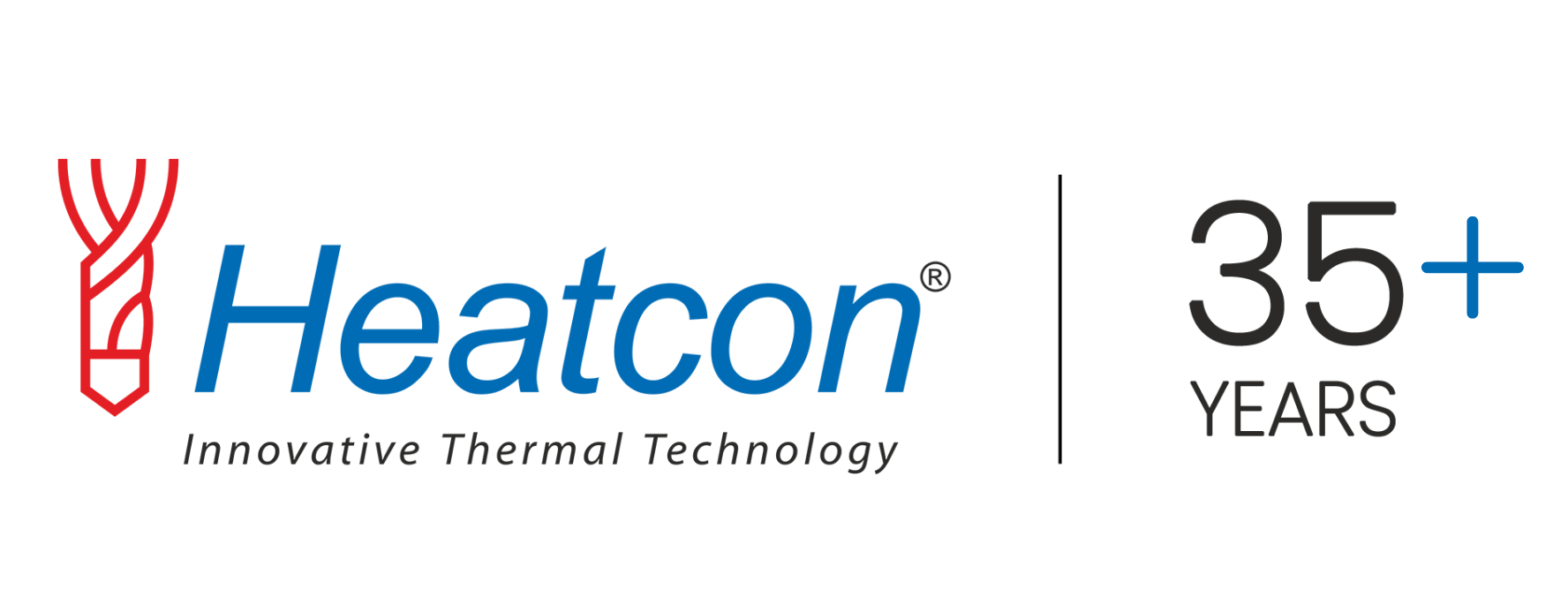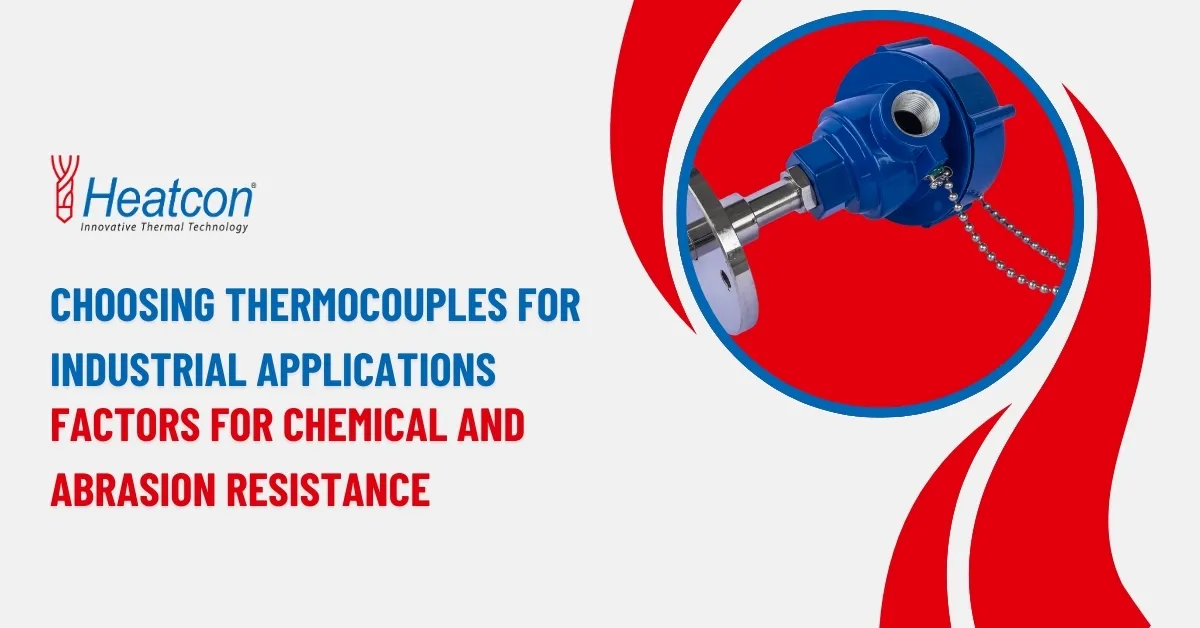Role of Thermocouples in Temperature Sensing Needs
Thermocouples tend to play a crucial role in temperature monitoring across a gamut of industries, from manufacturing to chemical processing. As per MarketsandMarkets, the thermocouple market globally is estimated to reach US 2.2 billion dollars by the year 2025, with a significant share attributed to their versatile applications in extreme temperature environments. Selecting the right thermocouple is very essential for ensuring accurate & reliable measurements, especially in demanding settings. This thermocouple selection guide aims to walk you through the critical factors for selecting the aptest thermocouple for your industrial need or any scientific application.
How to Choose a Thermocouple?
Making the choice for the most appropriate thermocouple for an application tends to involve a series of technical considerations. Let us explore these key factors to consider for accurate temperature measurement in detail:
- Thermocouple Types Comparison: Different types of thermocouples are suited to different ranges & environments. Understanding such types through a detailed thermocouple types comparison will help you select the most compatible type based on your operational needs. Common types include Type K, J, T, E, N, R, S, and B, each with its own unique properties. For example:
- Type K: This is suitable for general-purpose applications, has a broad temperature range.
- Type J: This works well for lower-temperature applications.
- Type T: This type is excellent for cryogenic uses owing to high accuracy at low temperatures.
- Temperature Range for Thermocouples: Each thermocouple type operates within specific temperature limits. Selecting one with an appropriate range is crucial, as exceeding it can result in inaccurate readings or damage. Selecting a thermocouple with the correct temperature range for thermocouples prevents overheating & ensures longevity. Some examples are given below:
- Type K thermocouples can measure from -200°C to 1260°C.
- Type J is effective up to 760°C.
- Thermocouple Response Time Factors: Response time is the speed at which a thermocouple adjusts to temperature changes. It varies depending on the type & size of the thermocouple wire. Considering thermocouple response time factors is essential in dynamic environments where rapid temperature fluctuations are common. Factors that affect response time include the following:
- Wire Diameter: Thinner wires respond more quickly.
- Insulation Material: Certain materials, like ceramic, can slow response.
- Chemical & Abrasion Resistance Thermocouples: For harsh environments, choosing a thermocouple with appropriate chemical and abrasion resistance thermocouples is essential. Factors such as the presence of corrosive gases, liquids, or abrasive particles affect the selection of thermocouple material. When working in chemically aggressive or abrasive conditions, such an aspect ensures durability & long-term accuracy. Generally speaking:
- Type K is widely resistant to oxidation.
- Type T works well in chemically inert environments.
- Installation Requirements for Thermocouples: Proper installation is critical to prevent measurement errors. Installation requirements for thermocouples must be considered for each application to achieve consistent, precise readings. Installation factors include the ones given below:
- Probe Positioning: Correct probe placement prevents inaccurate readings.
- Sheath Material: The sheath protects the thermocouple; materials such as stainless steel or Inconel are suitable for high-temperature environments.
- Thermocouple Sensor Selection Criteria: By evaluating each thermocouple sensor selection criteria, you can ensure that the selected thermocouple aligns with your operational & technical requirements. Selecting a thermocouple sensor needs consideration of criteria, as follows:
- Accuracy: Needed for precise control.
- Durability: Ensures longevity in demanding environments.
- Compatibility with Measurement Equipment: The sensor should be compatible with existing instrumentation.
Selecting Thermocouples for Industrial Applications: Factors for Chemical & Abrasion Resistance
In industrial applications, thermocouples must endure extreme conditions, including exposure to chemicals, heat, & physical wear. Such factors are indispensable while choosing thermocouples for environments with significant chemical exposure or physical abrasion. Below are key considerations for such settings:
- Material Compatibility with Environment: Selecting a thermocouple with material that withstands specific chemicals or abrasive substances is important. For instance, a Type N thermocouple gives excellent resistance to oxidation.
- Sheath Material for Enhanced Durability: The sheath material protects the thermocouple from physical wear & chemical degradation. Materials like stainless steel or ceramic sheaths are usually preferred in industrial applications for enhanced resilience.
- Insulation Type for Added Protection: Insulation materials like PTFE or fiberglass add an extra layer of protection. PTFE is ideal for chemically aggressive settings, while fiberglass can handle higher temperatures.
Procure Thermocouples from Heatcon Sensors
Heatcon Sensors provides a broad range of thermocouples designed for varied industrial applications. With years of expertise, we provide high-quality, durable thermocouples tailored for precision & reliability in the most demanding conditions. From chemical and abrasion resistance thermocouples to options with varying response times, our team ensures that each of our products meets the highest standards. Visit us to explore our collection, discuss your specifications, and find the perfect thermocouple for your application. Whether you need a thermocouple with specific installation requirements for thermocouples or one suited for extreme temperature ranges, Heatcon has you covered.
Selecting the right thermocouple can make all the difference in achieving accurate, consistent temperature monitoring in any kind of industrial setup. So, how to choose a thermocouple? Ensure you assess each factor for such a selection carefully. For professional guidance, Heatcon Sensors provides unparalleled expertise. Heatcon also offers quality products for your temperature measurement needs.


